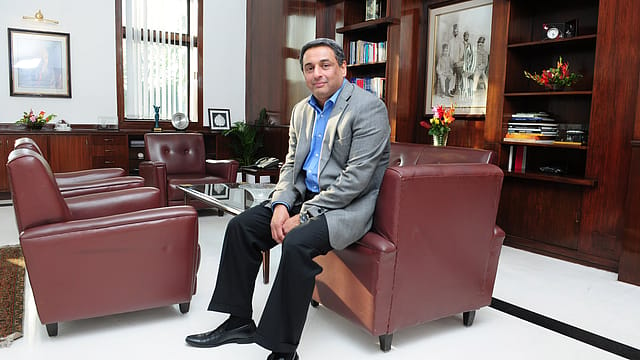Tata Steel cut debt 40% during Covid-19; zero net debt likely in 11 qtrs
ADVERTISEMENT

Tata Steel Ltd (TSL), which struggled with heavy debt of over ₹1 lakh crore, has cut down its net debt by a whopping ₹41,910 crore in the last seven quarters since the outbreak Covid-19 in early 2020. It will be able to bring down its net debt of ₹62,869 crore to zero by September 2024 at the current run rate, according to analyst estimates.
Before the pandemic, in March 2020, the steelmaker was struggling with a net debt of ₹1,04,779 crore. The gross debt was about ₹1,16,328 crore at that time. During lockdowns, the company re-strategised its debt management plan and channelled the free cash flows to reduce the financial liabilities. It has a gross debt of ₹72,603 crore in December 2021 and a cash and investments of ₹9,734 crore on books.
The priority is off-shore debt repayment, say officials. The company has made ₹17,376 crore overall repayments in the nine months of this financial year. The net debt to EBITDA improved to below 1 and net debt to equity improved to 0.68 times. It spent ₹7,214 crore towards capital expenditure in April-December 2021 period and targets to increase it to a total of ₹10,000-12,000 crore by March 2022. Work on the pellet plant, the cold roll mill complex and the 5 million tonne expansion at Kalinganagar is progressing, say officials.
The major drag for the company was its European business, which is looking to achieve financial self-sufficiency at its operations in the UK. Tata Steel UK, is likely to achieve financial self-sufficiency in the coming quarters, says TV Narendran, managing director and CEO, Tata Steel. The Netherlands business is already self-sufficient.
Tata Steel Europe (TSE), which includes the U.K. and the Netherlands operations, has posted positive earnings before interest, tax, depreciation and amortisation (EBITDA) of ₹2,942 crore in the third quarter ended December. It generated an EBITDA of ₹3,340 crore in the second quarter and ₹1,533 crore in the first quarter. The EBITDA per tonne stood at ₹13,642 in the December quarter, compared to a negative EBITDA per tonne of ₹3,436 a year back.
Tata Steel is making the European business self-sufficient so that it will not require any financial support from Indian entity. Tata Group had taken all efforts to turn around the European business in the past by idling blast furnaces, cut jobs and selling assets.
The European business, which was acquired for $12 billion in 2007, made operational losses in most of the last 14 financial years when it was under the Tata fold. Tatas made a failed attempt to merge it with Thyssenkrupp. Later it unsuccessfully tried to sell the IJmuiden steel plant, Netherlands to Sweden's SSAB.
TSL has posted a consolidated profit of ₹9,598 crore, which increased by 139%, in the December quarter. Recently, subsidiary Tata Steel Long Products has been declared as the winner for the acquisition of Neelachal Ispat Nigam Ltd. The acquisition will be financed by Tata Steel largely through internal accruals and bridge funding.